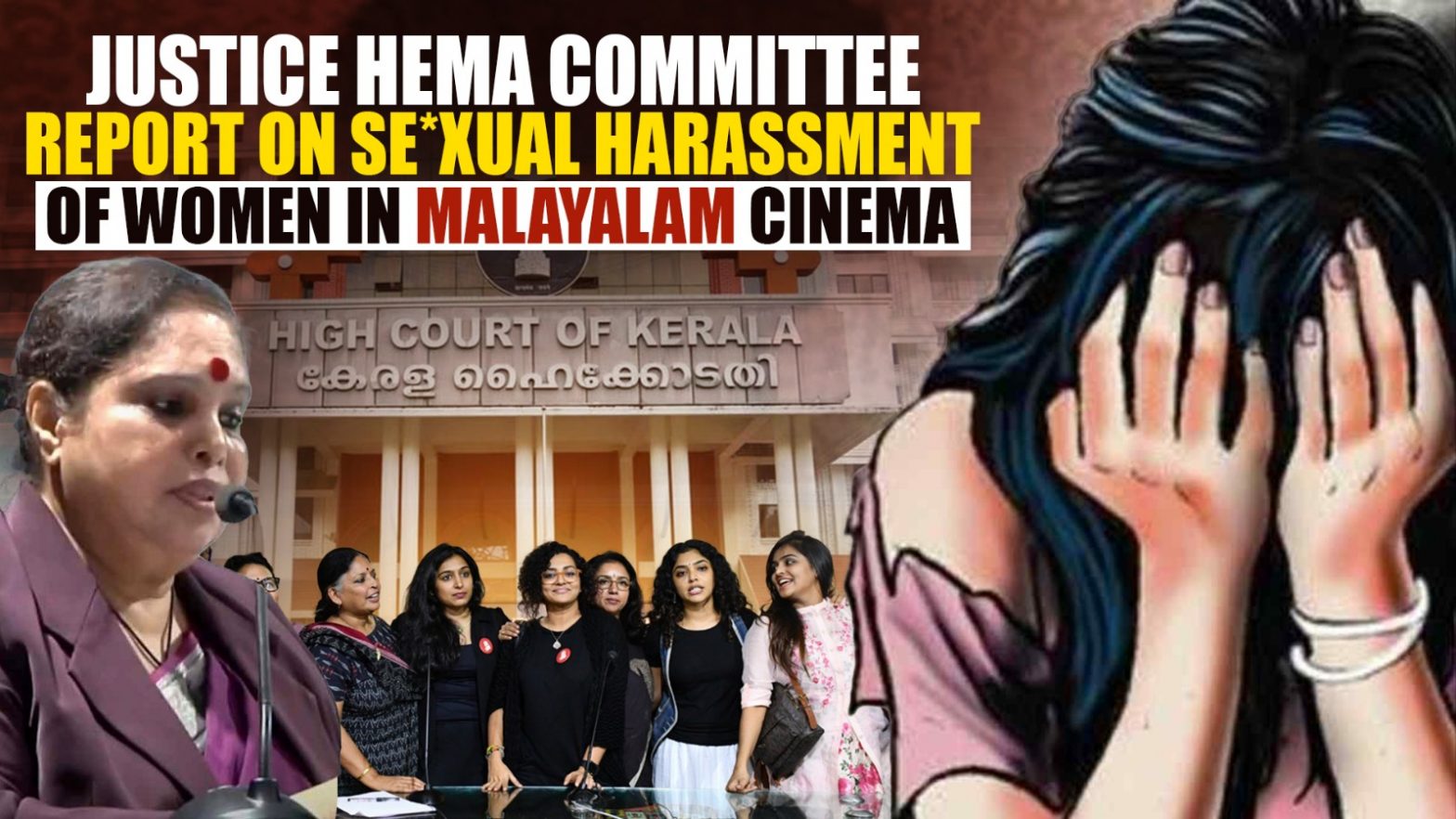
The Kerala police on Tuesday dropped 35 sexual assault cases which were booked after the Justice Hema Committee report was released by the Kerala government on August 19, 2024.
The report — written by retired High Court Judge K Hema, former bureaucrat K B Valsalakumari, and actor T Sarada — was made public four-and-a-half years after it was submitted to Kerala Chief Minister Pinarayi Vijayan. It revealed discrimination and exploitation faced by women in the Malayalam film industry.
What is Hema Committee Report?
The Hema Committee Report is a significant document that investigates issues of sexual harassment, gender discrimination, and exploitation faced by women in the Malayalam film industry in Kerala, India. Commissioned by the Kerala government in July 2017, it was formed in response to a petition by the Women in Cinema Collective (WCC) following the abduction and sexual assault of a prominent Malayalam actress earlier that year. The committee was chaired by retired Kerala High Court judge Justice K. Hema, with former actress Sharada and retired IAS officer K.B. Valsala Kumari as members.
Why was the Justice Hema Committee formed?
On February 17, 2017, a leading Malayalam film actress was abducted and sexually assaulted in a moving car by a group of men. A prominent Malayalam film actor, Dileep, was accused of orchestrating the attack, and was later implicated in the case.
The Women in Cinema Collective (WCC), comprising women actors, producers, directors and technicians, was formed in response to the 2017 incident. On May 18, 2017, the WCC submitted a petition to Pinarayi Vijayan, demanding an inquiry into the incident, and larger gender issues plaguing the state’s film industry.
In July 2017, the Kerala government formed the Justice Hema Committee to investigate sexual harassment and gender inequality in the industry. This was the first such committee formed by any state in the country.
After speaking to multiple women and men in the industry on various issues, the Committee submitted its report to the Chief Minister in December 2019.
Why was the release of the report delayed?
The Kerala government did not release the report for years saying that it contained “personal stories” of women who deposed before the Committee, and making the report public would amount to a violation of their privacy and right to anonymity.
However, five Right to Information activists and media personnel approached the Kerala State Information Commission (KSIC) for the release of the report. The KSIC on July 6, 2024, ruled in favour of a controlled release of the report to the petitioners. Sixty-three pages of the report were redacted before its release on August 14, 2024.
What happened after the report was released?
The report found that a culture of sexual harassment pervaded the Malayalam film industry. The Committee reported the existence of casting couch (wherein powerful men demand sexual favours from women in return for opportunities in films), frequent suggestive and vulgar comments made by men at the workplace, and drunk male co-actors forcing themselves into rooms of women, among other things.
The Committee also found that several women did not report instances of sexual assault due to a fear of retribution.
Following the release of the report, several women actors, technicians and junior artists came forward with testimonies of being harassed by male professionals in the industry. The testimonies put the Malayalam Film Artistes Association (AMMA) in the dock as several of their stars were named in sexual assault charges.
The Kerala police then took suo-motu cases against those who were named in sexual assault charges. “At the peak of the investigation, there were at least 60 cases which were filed both by the police and the survivors,” a Kerala police official told Sources.
Why have the police dropped the sexual assault cases?
According to sources, the cases were dropped due to either “lack of evidence” or “non-cooperation” of assault survivors.
“Several women just wanted to narrate the details of the incident and refused to proceed with formalities of police investigation. Also, as many of these instances of harassment took place a decade or more ago, it was difficult to find evidence,” a source said.
A survivor, who is an actor in the industry, told Sources, “The police insisted that we can talk about our bad experiences only if we file cases. Many of us did not think that this was the way ahead and decided not to proceed further with the complaints”.
Another survivor, who is a technician, said, “We are sad that the cases are being dropped. We thought those who harmed us would be punished. Some of us are also facing defamation charges by the accused”
Several women who work in the Malayalam film industry said the Kerala government needed to bring “systemic changes” in the functioning of the industry. They also said that the government needed to create forums, including an internal committee, to tackle the issues faced by women in the industry. “Police action should not be the only way forward as it has proven to be ineffective,” one of the survivors said.
